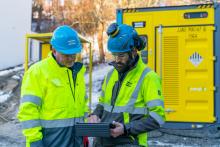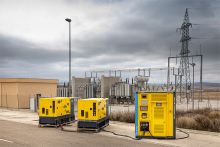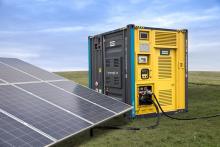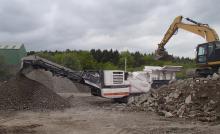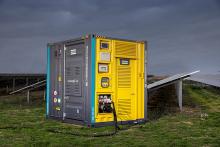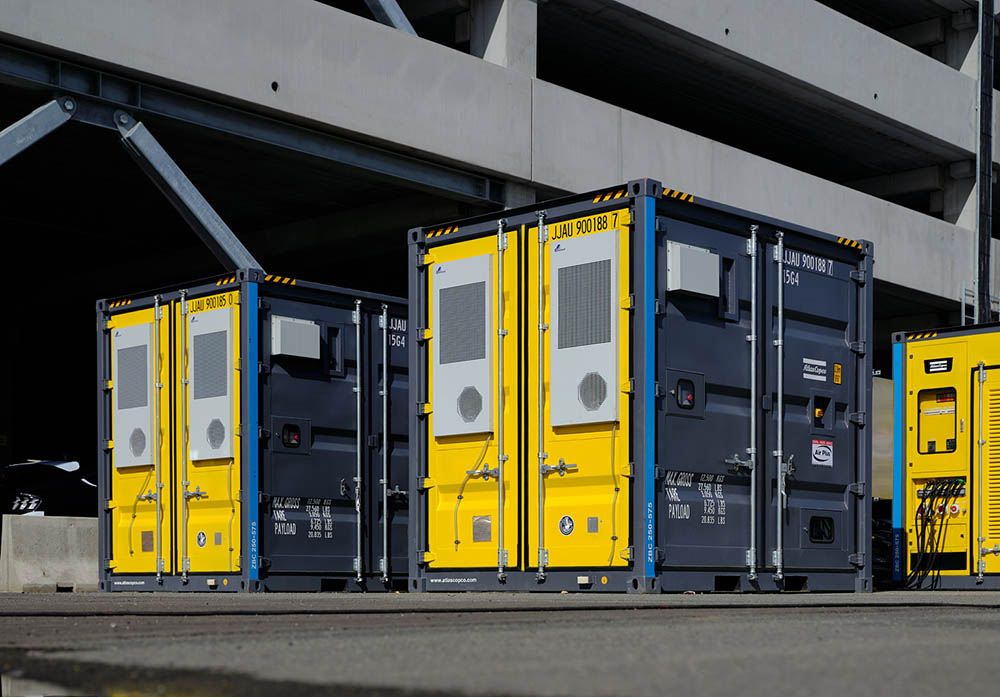
The state-of-the-art systems, designed with sustainability in mind, are suited to noise-sensitive environments, such as events, metropolitan construction sites, telecom, manufacturing, mining, oil and gas and rental applications. They are said to enable operators to dramatically reduce fuel consumption and CO2 emissions.
The additions to Atlas Copco's portfolio include a larger ZBC 300-300 unit and a smaller line of battery-based storage systems, the ZPB 45-60, ZBP 45-75, ZBP 15-60 models, and the ZBP 2000 with two flexible solar panels. With a complete offer of ESS, users will now benefit from increased flexibility and versatility in their operations, with both standalone and hybrid solutions across their sites.
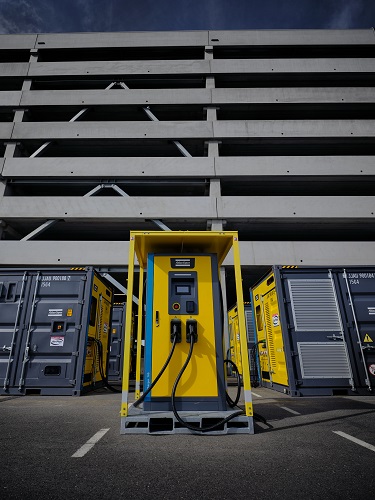
"Our customers are increasingly seeking clean energy solutions to be more sustainable and efficient in their operations," explains Bárbara Gregorio, marketing manager Power & Energy at Atlas Copco's Power and Flow Division. "Atlas Copco has been at the forefront of power generation for many decades, and we are renowned for our high performance and high-quality equipment. The move towards battery storage solutions is a natural evolution for us, and we have continued to develop the ESS portfolio using the best battery technology for our targeted applications, making the benefits of clean power available to more applications and for new opportunities in our sector."
These cutting-edge energy storage systems are ideal for applications with high energy demand and variable load profiles, as they successfully cover both low loads and peaks. For example, they can properly size cranes and other electric motors and successfully manage peaks in energy demand for noise-sensitive events and for electric vehicles (EV) recharging stations. Furthermore, operators can synchronise several models, which can become the heart of any microgrid, storing and delivering energy coming from several energy sources, including renewables.
The small ZBP units - the ZPB 45-60, ZBP 45-75 and ZBP 15-60 - present a new design, are modular, mobile, and up to 70% lighter in weight than other battery systems, so they can easily be moved around the site to provide clean and quiet energy where required. They are ideal for applications such as events and telecom. They can work alone in island mode or can be coupled with a diesel generator to provide a hybrid solution with significant energy savings. The ZBP models are easy to use and install and have lower maintenance needs than a standalone diesel generator, which translates into a reduced total cost of ownership (TCO). Featuring advanced high-density lithium-ion batteries, these energy storage systems provide excellent performance with over 12 hours of power from a single charge, and they can be fully charged in less than one hour (depending on the model).
ZBP 2000 is a fully sustainable portable solution. It has two foldable solar panels, which could recharge the unit in great weather conditions or maintain a proper battery level during less efficient production days. It is suitable for small events and construction sites, providing silent operation and zero emissions while working with solar energy. Up to five units can easily be joined in parallel to give users higher power levels of up to 10kW.
Compact and lightweight, with a footprint of 1m3, this unit is robust enough to withstand conditions typically found on construction sites. The ZBP 2000 energy storage system has IK09 impact resistance classification and an Ingress Protection rating of IP65. It provides exceptional protection from dust and water, so users can be confident it provides excellent reliable performance in harsh environments.
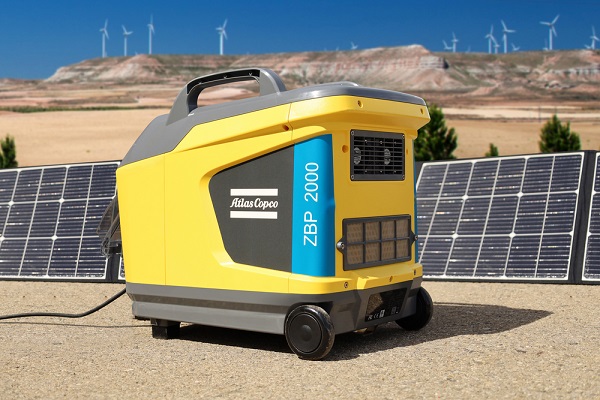
The ZBC 300-300 joins the ZBC 250-500 and ZBC 500-250 models to complete the medium range of ESS and is a 10ft container designed to meet the requirements for off- and on-grid applications and is ideal in combination with renewable stations, providing up to 4,5MWh of storage capacity. It is a scalable solution, as up to 16 units can be connected in parallel. Moreover, when operating in hybrid mode with a diesel generator, users can reduce daily fuel consumption by up to 90%, depending on the application.
During standalone operation, these energy storage systems offer no fuel consumption and no CO2 emissions, operating at less than 80 dB(A), while allowing users to increase the productivity of their core business by up to 50%.
All Atlas Copco's energy storage systems come with the manufacturer's intelligence, the ECO Controller, a unique in-house designed and developed Energy Management System (EMS). With the introduction of this human-machine interface (HMI), operators will optimise energy generation, distribution, and consumption. As the 'brain' of the energy storage system, ECO communicates with all components, including inverters, batteries, solar charge controllers and energy meters. The controller ensures consistent operations and optimal performance of the entire installation, therefore enabling operators to minimise downtime.
Atlas Copco's ECO Controller offers a seamless user experience and provides performance data so customers can take any immediate corrective action, thereby increasing the lifetime of components and generators and the overall operational efficiency while reducing long-term costs.
Moreover, Atlas Copco has launched its fast charger for electric vehicles and heavy-duty machinery - the Z Charger- to enhance the electrification of certain sectors. This new solution, which increases the charging rate by boosting the voltage, decarbonises the recharging of battery-driven machinery and vehicles when working with an energy storage system.

